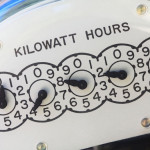The primary purpose of an Energy Audit and is to save money! If executed properly the results of the audit will outline the IDEAL combination of factors that will allow a company to:
- Reduce energy consumption
- Reduce energy expense
- Upgrade to more energy efficient technologies
Looking at all the variables is key!
A properly trained energy auditor begins by capturing an immense amount of information. The information looks at all the variables associated with a company’s use of energy. The goal is to determine the ideal combination of factors that will save money while at the same time maintaining an ideal environment. It’s easy to cut costs by simply turning lights off but in most cases that’s not a viable option.
“Lighting is one of the highest percentages of energy use and changing to more efficient technology provides one of the shortest payback periods in terms of capital investments.”
 Solutions involve specialized knowledge
Solutions involve specialized knowledge
Replacing outdated technology with more energy efficient products is a common approach made by a product salesman. This approach typically has a high up front expense which typically makes it unaffordable. A skilled energy auditor will have specialized knowledge of the energy efficient technologies, low cost financing options, tax incentives, plus community and utility company incentive programs. In many cases a skilled energy auditor can detail ways to cut energy expenditures as well as determine how to pay for any upgrades through a combination of special finance programs and utilizing a portion of the resultant energy savings to achieve no out of pocket cost and an improvement in cash flow.
How to determine if you need an Energy Audit
It is not unusual for our energy auditors to go into a business that is still using the lighting, heating and cooling technology from the original building construction. If the building has been in use for a period of time the staff often has zero knowledge of what kind of lights are in use, what wattage bulbs they are using, or what options they have in the local market for utility providers. Natural gas heating is a perfect example. Because of energy deregulation simply switching to a new energy provider can often cut costs dramatically!
Energy Efficiency Upgrades
If you would like to know if energy savings are possible for your building or business the Energy Alliance Group has compiled a free report entitled Ten Questions to Ask Before an Energy Efficiency Upgrade! If you would like a copy of the report e-mailed to you simply click HERE!

The HWH and refrigerator consume the most energy.
Updating these should be the first priority, cleaning or replacing filters, and cleaning coils.